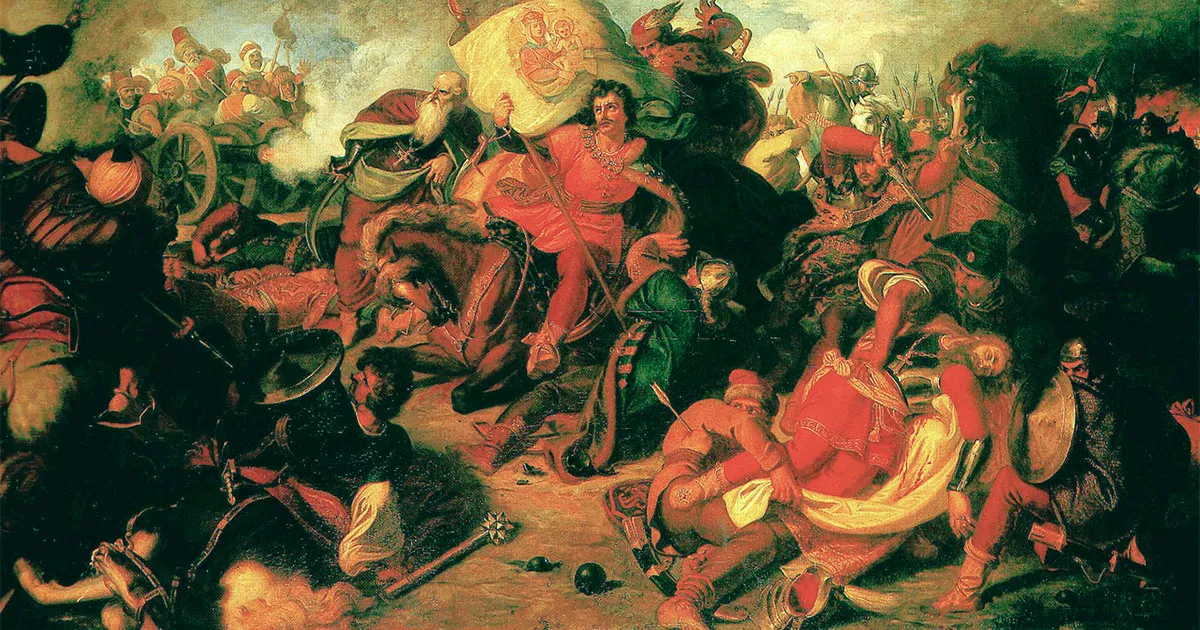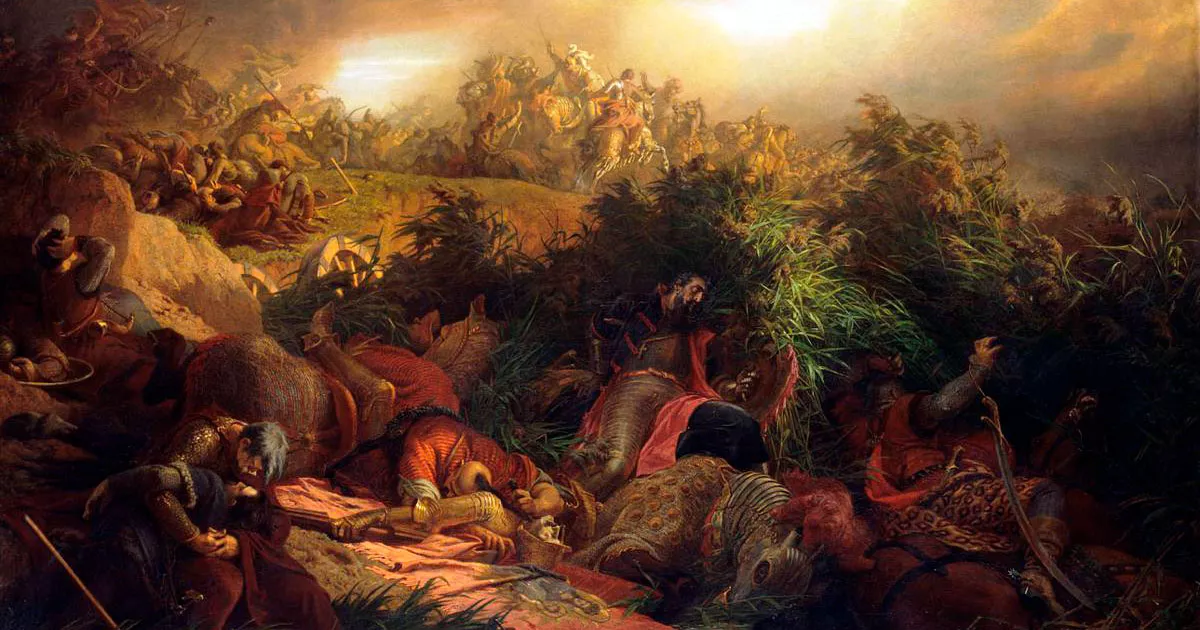The Research Centre for Humanities (BTK), part of ELKH, has added a new volume to the Mohács 1526–2026, Reconstruction and Memorial series. The book, edited by János B. Szabó and Gábor Farkas Farkas, uses both contemporary and subsequent sources to present the Battle of Mohács, which took place on 29 August 1526, as well as the period leading up to the battle and the events that followed the historical clash.
"'The Battle of Mohács is eternal. It is a reference point, eternally bitter, eternally something that 'sticks in the throat' of every Hungarian with an interest in the past," writes Pál Fodor, the BTK General Director. In addition to providing a broad description of the era, the authors also seek to show what was actually lost at Mohács.
-

Mór Than: The Battle of Mohács.
- Many of the sources that underpin the book are available to read in Hungarian for the first time. In addition to new texts, the authors also incorporated Hungarian translations of earlier known sources into the corpus. Thanks to the translation team involved in the Mohács project, English, German, French, Italian, Czech, Turkish and Latin texts will be presented to the reader in Hungarian translation either for the first time, or as improved versions of earlier translations.
The book is more complete than previous essay collections and presents a more accurate picture of both historical events and the continuous transformation of our memory of the past, which, as we pass through different eras, has also affected historical research and our understanding of this historical moment.
The book groups the published works into three thematic sections. The first section examines the events of the year 1526. The second presents a new interpretation of the various genres of cultural memory, with a more detailed examination of who remembers what in relation to the Battle of Mohács, and what has been thought important to highlight or to suppress. This section promises to be extremely instructive as it gives us the chance to view in chronological order the often problematic literature, politics and cult that have developed in Hungary around the Battle of Mohács. In the third, extended section, texts on Mohács, organized around a theme (the location of the battle, the Hungarian war plan, the death of the king, etc.), present one and a half centuries of scientific discourse and the mythology closely related to it.
-

Bertalan Székely: The Battle of Mohács
- The collection of articles has some true delights. For example, published for the first time in the Hungarian language, you can read Suleiman the Magnificent's letter to the Doge of Venice, a dreamlike battle plan against John Zápolya, a fragment of writing from Caspar Ursinus Velius on the Battle of Mohács, an excerpt from Wolfgang Lazius's historical work, and a paean to the House of Habsburg. In a new translation (and with new notes), you can also read the list of weapons and munitions of Ottoman Viziers, statesmen, Sanjaks, court mercenaries and Janissaries in the campaign, and the extremely significant Turkish war diary of 1526. Exciting and up-to-date Italian spy reports, also available for the first time in Hungarian, German newspapers that anticipate modern popular culture, Czech and Latin chronicles that are a mix of historical impartiality and myths, and various English and French letters are also excellent additions.